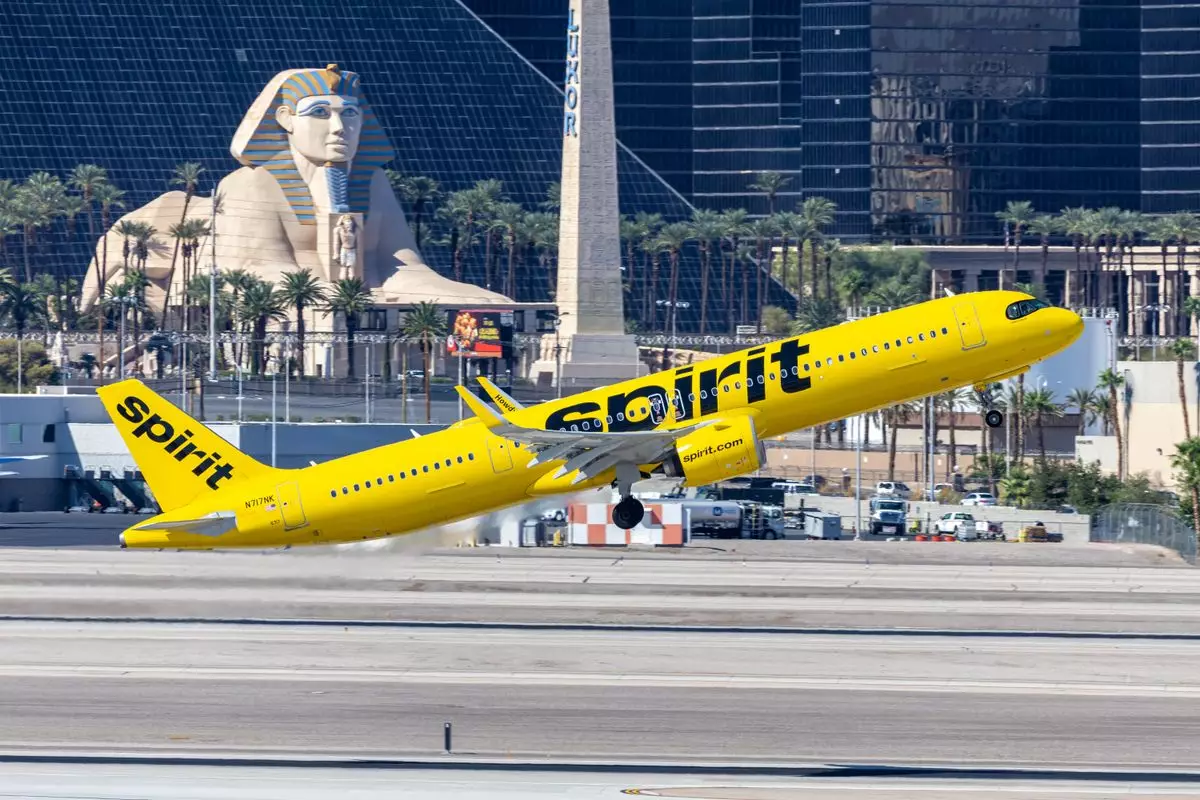The recent resignations of Spirit Airlines’ CEO Ted Christie and Chief Commercial Officer Matt Klein have sent ripples through the airline industry, as the low-cost carrier grapples with a tumultuous landscape filled with both trials and opportunities. The sudden nature of these exits is emblematic of the broader upheaval facing Spirit, a company that has barely emerged from the shadows of Chapter 11 bankruptcy just last month. In this environment of uncertainty, a triad of executives—Chief Financial Officer Fred Cromer, Chief Operating Officer John Bendoraitis, and General Counsel Thomas Canfield—will temporarily steer the airline as it searches for permanent leadership.
The appointment of Rana Ghosh as the new Chief Commercial Officer indicates a potential pivot in Spirit’s strategies. Ghosh, who previously held the role of Chief Transformation Officer, is now tasked with championing efforts to rejuvenate the airline’s image and product offerings. The urgency of her mandate is underscored by Spirit’s steep net loss of $1.23 billion last year, a stark reminder that financial wounds don’t heal overnight.
Financial Viability in Jeopardy
Despite a recent influx of capital—indicated by bondholders converting $795 million in debt to equity to bolster Spirit’s balance sheet—the airline finds itself in a precarious situation. With only $902.1 million in cash equivalents at the close of 2024, the financial stability of Spirit Airlines is far from assured. This tightrope walk between financial survival and operational expansion complicates the narrative for stakeholders, employees, and travelers alike.
Indeed, as Spirit attempts to reposition itself within the industry by targeting a wider audience, it also faces fierce competition from rivals like Southwest Airlines, which has recently entered the basic economy fare market. The introduction of this fare class by a competing airline further complicates Spirit’s efforts to differentiate itself. In a saturated market, where customer preferences can shift on a dime, the relevance of Spirit’s low-fare model is increasingly in question.
Union Concerns Create Additional Pressure
While restructuring its leadership and business approach, Spirit must also navigate the growing discontent among its pilot union. The Air Line Pilots Association’s Spirit unit has made it clear that they expect the next CEO not only to serve as a figurehead but to embody a transformative leadership style that prioritizes transparency and integrity. The pilots’ demand for actionable leadership emphasizes the delicate balance Spirit must achieve between financial constraints and employee morale.
The backdrop of protracted negotiations over new contracts exacerbates the situation. Since the cessation of JetBlue’s acquisition efforts—blocked by the Justice Department—Spirit’s pilots have been left uncertain about their futures and the direction of their airline. Trust is crucial, and with skepticism hanging in the air, the new leadership faces a daunting task in rebuilding confidence among employees and customers alike.
In this transformative phase for Spirit Airlines, the challenge is as much about redefining corporate culture and financial stability as it is about navigating an unpredictable market. Going forward, Spirit’s path will be a testament to the strength of its leadership and the resilience of its operational model in an industry that continues to evolve dramatically.


Leave a Reply